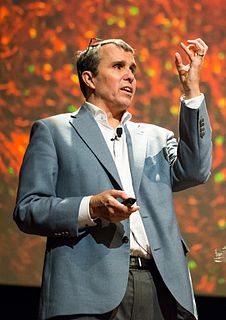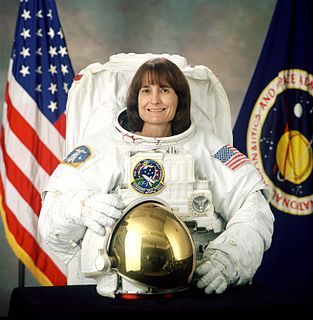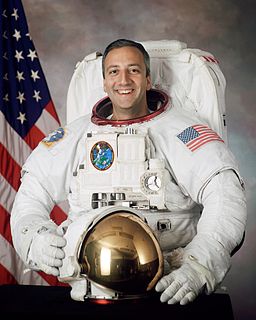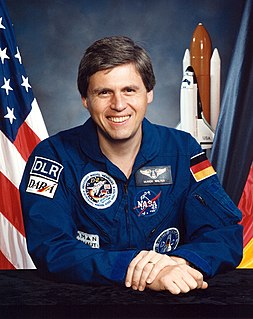A Quote by Eric Betzig
I was born in 1960 and can still tell you the name of every astronaut from Mercury to Apollo. If I had a chance, I'd love to go into space on one of the privately developed space crafts.
Related Quotes
I had always been interested in the space program, and I didn't know if I could be an astronaut like I'd dreamt about when I was a little kid - to me it sounded kind of silly, someone grow up to be an astronaut - but, when I was in my 20s, I thought maybe I can get a job with NASA or a contractor, do something with the space program.
I was the first person to tweet from space, but now every astronaut tweets from space and does Instagram and Snapchat and Face - they have Facebook going. I think it's more of a personal relationship they have with space now. They see it as more obtainable than me watching my superhero Neil Armstrong and Buzz Aldrin walking on the moon. It's like, there's no way I can do that.
There's a huge amount of pressure on every astronaut, because when you get right down to it, the experiments that are conducted on a space flight, or the satellites that are carried up, the work that's to be done, is important and expensive work, and you are up there for a week or two on a Space Shuttle flight. The country has invested a lot of money in you and your training, and the Space Shuttle and everything that's in it, and you have to do things correctly. You can't make a mistake during that week or two that you're in space.
The space station mission was kind of the culmination of all of my experience of being a NASA Astronaut, so it had brought all of my previous experience into play. I had to learn the Russian language to a fluent level so that I could function as the co-pilot of the Soyuz Spacecraft that we flew up and back from the space station. And then the challenge of being the Commander of the whole expedition, a six and a-half month flight aboard the international space station. I felt the burden of the whole mission on my shoulders, which was fine, and fortunately everything did go well.



































